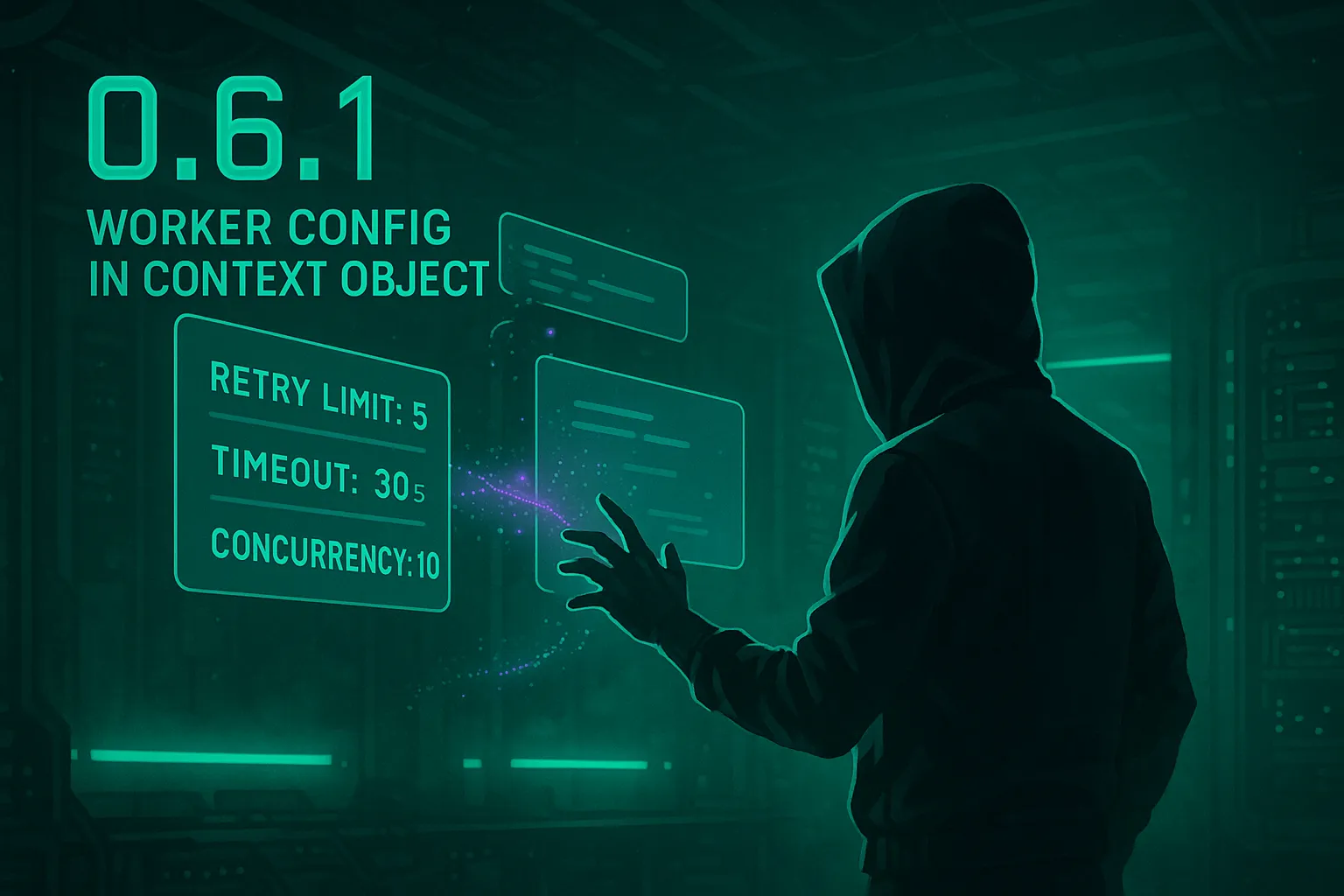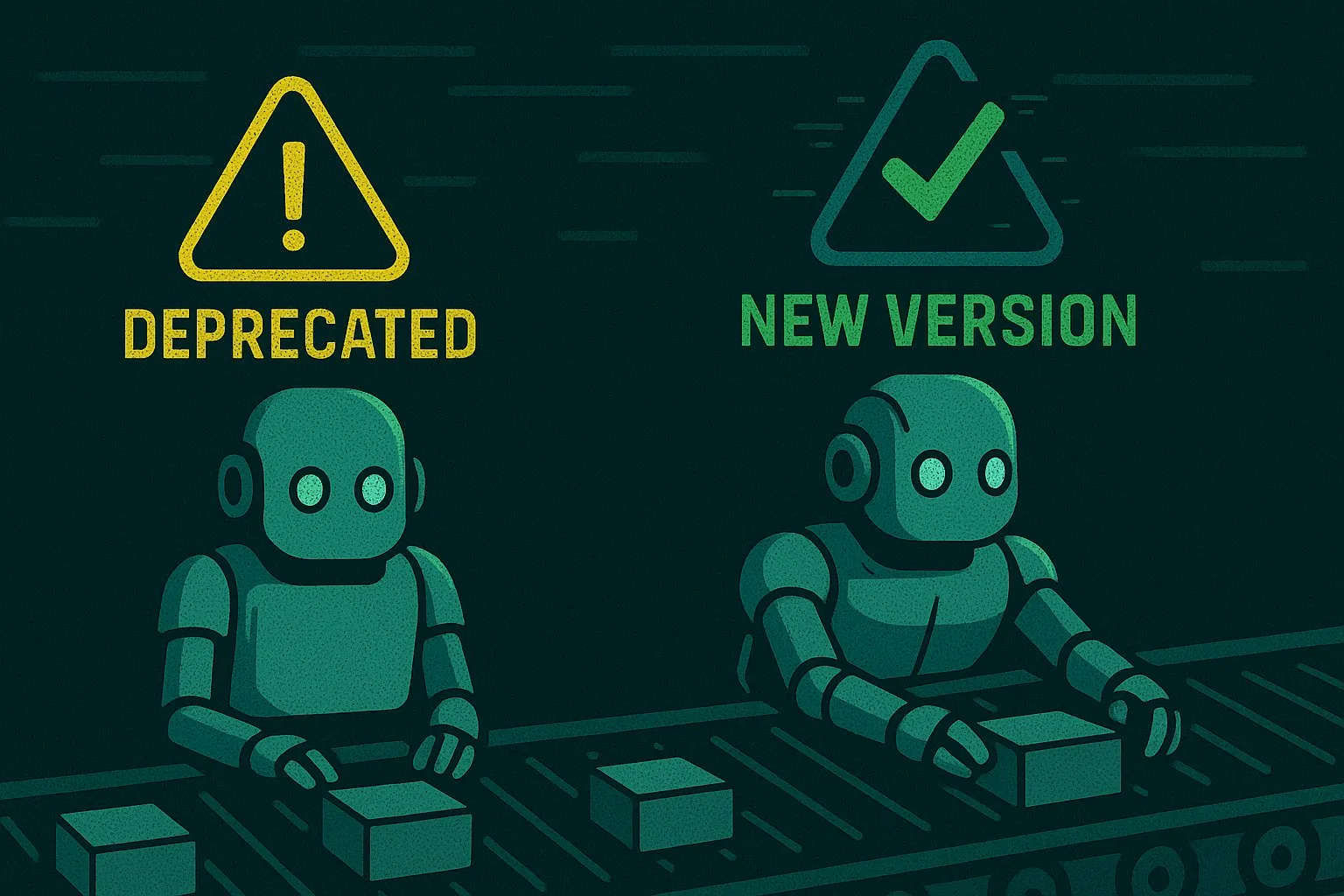pgflow 0.6.1: Worker Configuration in Handler Context

pgflow 0.6.1 adds workerConfig to the handler execution context, enabling intelligent decision-making based on worker configuration.
Worker Configuration in Context
Section titled “Worker Configuration in Context”Handlers now have access to the complete worker configuration through context.workerConfig (#200). This enables smarter handlers that can adapt their behavior based on retry limits, concurrency settings, timeouts, and other worker parameters.
async function sendEmail(input, context) { const isLastAttempt = context.rawMessage.read_ct >= context.workerConfig.retry.limit;
if (isLastAttempt) { // Use fallback email service on final attempt return await sendWithFallbackProvider(input.to, input.subject, input.body); }
// Use primary email service for regular attempts return await sendWithPrimaryProvider(input.to, input.subject, input.body);}See the context documentation for complete details on available configuration properties and additional examples.
Bug Fix
Section titled “Bug Fix”This release also fixes retry strategy validation to only enforce the 50-limit cap for exponential retry strategy, allowing higher limits for fixed strategy when needed (#199).
Updating to 0.6.1
Section titled “Updating to 0.6.1”Follow our update guide for step-by-step upgrade instructions.

